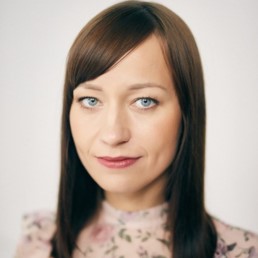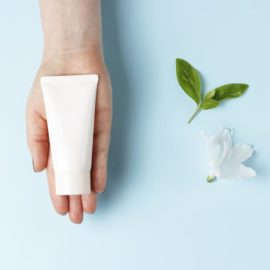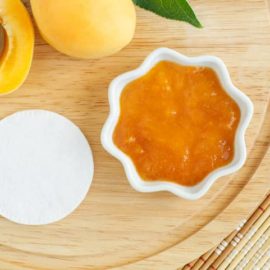MONIKA KRZYŻOSTAN INTERVIEW

Cosmetologist with a Master of Arts in Cosmetic Chemistry, Monika Krzyżostan gained her professional experience working as a technologist in the R&D departments of cosmetic and pharmaceutical companies, where she worked on research and formulation. She has conducted research on the efficiency of hyaluronic acid and peptides release from various formulations, as well as creating numerous cosmetic formulations tailored to individual customer needs. She is now the Head of R&D at the Dr. Koziej Cosmetic Research Institute.
Monika is also a journalist and a cosmetic consultant. Author of many scientific publications, she periodically publishes articles about regulation, composition and technological solutions in professional magazines for the cosmetics sector.
Now more than ever, consumers want brands to be upfront and open about their practices. Trying to navigate a world of vague regulation is difficult for consumers, and accreditation can help to inform their purchase decisions. Therefore, the use of certifications as signposts has become essential to build trust amongst consumers.
The Dr Koziej Institute offers a great set of investigation and quality tests to help cosmetic manufacturers guarantee the safety of a cosmetic product and the compliance of its documentation with the legal regulations in Europe, with the ultimate goal of achieving the maximum development and performance of a cosmetic business or product. With your market experience and technical knowledge, which would you say are the claims or certifications that are at the forefront of consumer’s minds? Are they different in Europe (as a whole) than specifically in Poland?
In my opinion, natural products, ‘cruelty-free’, vegan and hypoallergenic are the most sought after. Claims relating to “zero waste” are also very popular and apply to both cosmetic ingredients and packaging. Consumers have a desire to limit amounts of waste, separate rubbish, move away from plastic packaging and use instead glass jars and paper bags.
Sensible, thoughtful shopping, also called ‘consumption minimalism’, has entered into the area of skin care. Clients have started to move away from 13-step rituals typical of K-beauty, replacing them with multipurpose cosmetics. Significant factors in the choice of cosmetic products are: functionality, high quality, brand transparency and sustainable development. Clients pay special attention to the content of palm oil or its origins (RSPO certificate), biodegradability and the origins of other ingredients (renewable resources, organic plantations with monitored growing and harvesting conditions, recycled – e.g. obtained from food waste). We can also observe growing interest in the certification of natural products and I think that this is a global trend. One of the most popular certification that customers ask for is the COSMOS/Ecocert certificate for natural and organic cosmetics.
As far as we understand, the Dr Koziej Institute offers guidance to companies (or future companies) that want to introduce their products to the Polish market, or that want to internationalise them. What would you say are the greatest challenges for a company when entering the Polish or European markets? And what about European brands that want to sell their products abroad? (regulation-wise)
Each country has its own legal regulations regarding the composition of products, labelling, required tests and the functions that a cosmetic is to fulfil. For example, sunscreen products in the United States are OTC drugs and in Europe are cosmetics. Therefore, if you want to distribute cosmetics to different markets, you should learn about the requirements for cosmetics in a given country.
From a legislative perspective, cosmetics placed on the European market should primarily meet the requirements of Regulation 1223/2009, this is imperative.
But the greatest challenge for cosmetics companies, I think, is to find clients for their products, due to the high level of market competition.
The cosmetics market changes very dynamically, therefore the challenge is also to stay ahead of trends.
It is said that safe beauty is the new clean beauty. Transparency and natural sources have become a norm among clients. And as you mentioned in one of your articles in the Cosmetic Reporter Magazine, “Trends in natural cosmetics, which are not new, have been gaining popularity year by year and are predicted to continue to increase”. How do you think this trend is going to evolve in terms of regulation and certification? In your opinion, what is the future of the claims “natural” or “organic”?
Ecology is already a global trend and has penetrated modern lifestyles. The expectation is that this tendency is here to stay. Natural cosmetics have almost become a must-have attribute in the portfolios of global brands and small companies alike. Customer awareness of ingredients is already so widespread, that the aversion towards marketing tactics implemented by some brands has been increasing. It is very hard to discern those cosmetics which contain ingredients obtained in a sustainable way, processed in a physical way and with respect towards the rules of green chemistry. The INCI formula neither gives such detailed information, nor mentions the origins of the ingredients and their cultivation. Therefore, it is very easy to buy a cosmetic product, which is just called ‘natural’. Regarding this, consumers are more careful when checking the formula and expect transparency in the entire life cycle of a product. Natural and organic certificates give the customer confidence that the cosmetic formula, production process and packaging have been verified by qualified specialists. I believe that the certification of natural cosmetic products will become mandatory in the coming years. Certainly, each manufacturer will have to specify if the standard or certification of the cosmetic product is natural. Unsupported ‘natural’ claims of all types will soon be a thing of the past.
The institute also offers a full range of advice on cosmetic production, composition and technological solutions. What is the usual pathway/process you would recommend to a cosmetic brand when launching a new line of natural products (or when it wants to be fully repositioned as a natural brand)?
First of all, make a decision about certification at the beginning. Then the entire process of creating a cosmetic formula, such as the selection of active ingredients and methods of their preparation, as well as the choice of packaging will be done in line with a given standard. Next, look for producers or suppliers of raw materials who produce them according to the principles of sustainable development. In our institute, we have qualified technologists with many years of experience in creating recipes for natural cosmetics, who know the requirements of certification bodies such as the COSMOS standard and Ecocert certificate. The next step after the formulation has been developed is to conduct the cosmetic tests necessary to develop a safety assessment of the cosmetic product. An external audit is a necessary for the company to be able to produce cosmetics with the Ecocert certificate. Therefore, the company should also modify the factory in order to enable the production natural certified cosmetics.
At Provital, in conjunction with our commitment to people and the planet, we have a department fully dedicated to regulatory compliance, in order to ensure our trustworthiness to our clients. Every line or active ingredient of ours has one certification or another. For instance, we have a specific line of natural extract products, called EcoCares, that are Eco-Certified (organic and COSMOS). With this clear indication of the product’s environmental credentials, brands can communicate a positive environmental message to customers, and therefore extend their reach to the growing natural cosmetics segment. From your perspective, what should a product manufacturer do to strategically take the most advantage of an eco-certified Aloe Vera gel, for example?
I think that cosmetics manufacturers should broadly inform customers about the origin of a given ingredient, about the growing methods of the plant from which the extract was made and about the processing methods involved. Clients require producer transparency, clear marketing communication and an openness to questions. Given that Aloe Vera gel is natural, and a 100% extract from Aloe Barbadensis a lot can be communicated in terms of sustainable development and the protection of our planet.
No comments yet
There are no comments on this post yet.





Leave a comment